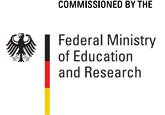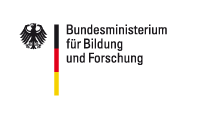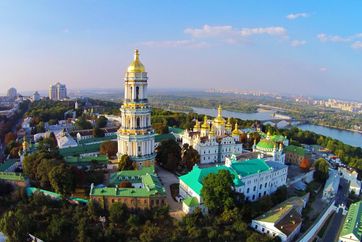- Funding the cooperation
- Political framework
- Priorities of the cooperation
- Highlights of the bilateral cooperation
- Cooperation in the context of the EU / Multilateral cooperation
Funding the cooperation
In principle, subsidies can be granted for measures listed in the current announcements as part of the bilateral cooperation in research and education between Germany and Ukraine.
Political framework
The main basis for the cooperation is the 'Joint Declaration of the Federal Ministry of Research and Technology of the Federal Republic of Germany and the State Committee for Science and Technology of Ukraine on Science and Technology Relations' signed in 1993. The partner ministry of the Federal Ministry of Education and Research (BMBF) is Ukraine’s Ministry of Education and Science (MESU).
In addition, cooperation between German and Ukrainian institutions takes place both in the context of the EU`s Neighbourhood Policy and in an international context. The cooperation between the EU and Ukraine in the fields of science and technology is based on a corresponding association agreement of March 2015, which also lead to new perspectives for Germany to intensify research cooperation with Ukraine.
Priorities of the cooperation
The main priorities of the bilateral cooperation in terms of content are in the fields of
- Biotechnology,
- Nanotechnology, new materials and production technology,
- Health research and medical technology,
- Technologies for the effective use of resources and energy, sustainable environmental technology.
Cooperation partners on the German side are predominantly universities and institutions of the Fraunhofer Association, the Helmholtz Foundation, the Max-Planck Society and the Leibniz Association; the Ukrainian partners are primarily the institutes of the National Academy of Sciences of Ukraine as well as universities.
The joint working group on Science and Technology Cooperation (STC) focuses on bilateral support for numerous German-Ukrainian research projects. The joint call 2016 was the first to promote structural and strategic support measures for Ukraine at the initiative of the Federal Ministry of Education and Research. Bilateral networking and consultancy projects support the ongoing restructuring processes of the research landscape, science management and technology transfer in Ukraine and are oriented towards the following structural and strategic objectives:
- Strengthening cooperation between universities, research institutes and SMEs,
- Internationalisation of research,
- Joint participation in 'Horizon 2020'
- Evaluation and reform of existing research institutes (e.g. Universities/NASU)
- Optimal use of the innovation potential and better market development
- Optimisation of science and technology management (e.g. clustering)
The next step towards increased institutional cooperation between Germany and Ukraine is a call for proposals for the establishment of German-Ukrainian Centres of Excellence in Ukraine, which will be published in November 2019.
Highlights of the bilateral cooperation
In the context of the Federal Government’s Ukraine Action Plan, the BMBF together with German science and intermediary organisations initiates and manages demand-oriented measures in different target areas in Ukraine, such as to internationalise universities and research institutions, increase the research performance of universities, and restructure the National Academy of Sciences in Ukraine. In this context, the following bilateral events and meetings took place (selection):
- Meeting of the Parliamentary State Secretary in the BMBF Mr Thomas Rachel with Ukrainian Minister of Education and Science Ms Hanna Novosad (November 2019, Kiev)
- Coordination of the planned Excellence Initiative between BMBF and MESU (May 2019, Kiev)
- 25th Anniversary Ceremony of the German-Ukrainian Scientific and Technical Cooperation (January 2019, Kiev)
- Kick-off Event for German-Ukrainian structural projects of the STI call 2016 (July 2017, Kiev)
- Ministerial Meeting at the “German-Ukrainian Dialogue: Perspectives for Education and Science” (July 2016, Berlin)
- Initiation of the international academic network “UKRAINEt” together with AvH, DAAD and DFG (January 2016, Berlin)
- Workshop on evaluation methods with the National Academy of Sciences for Ukraine (March 2015, Kiev)
- Forum on current challenges in education, science and innovation at universities with the Ukraine’s Ministry of Education and Science and the National Taras-Shevchenko University Kiev as the main event organiser on the Ukrainian side (March 2015, Kiev)
The mentioned events were co-implemented and financially supported by the BMBF, while the International Bureau at the DLR Project Management Agency provided content and organisation. Further information on successful cooperation projects can be found under success stories.
Cooperation in the context of the EU / Multilateral cooperation
In the EU context, the bilateral cooperation with Ukraine designed by the BMBF is supplemented by a number of EU projects. Here are some of the projects in which the International Bureau of DLR Projektträger participated:
- RI-LINKS2UA (2016-2019) The overall aim of the project entitled 'Strengthening Research and Innovation Links towards Ukraine' was to further support and enhance the integration of Ukraine to the European Research Area.
- BLACK SEA HORIZON (2015-2018) supported the relationships between the EU and the Black Sea region through varied measures in the fields of science, technology and innovation.
- IncoNet EaP PLUS (2016-2019) fostered the political dialogue between EU and Eastern Partnership counries in the areas of research and development, and facilitated access to the European Research Area for researchers in the region.










